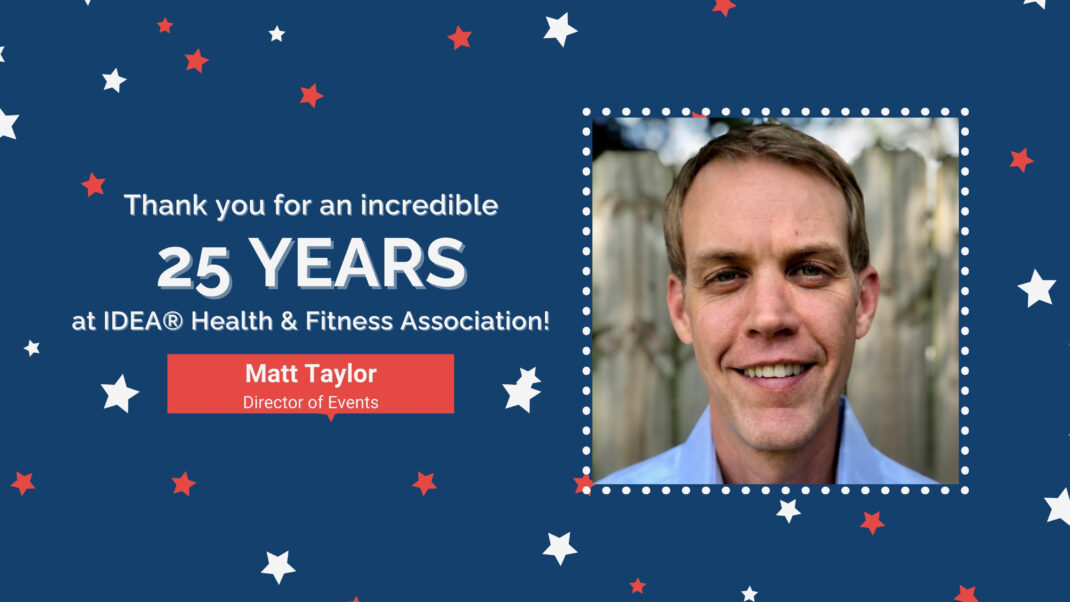Reiki & Fitness: A Winning Combo?
It doesn’t take long before many fitness professionals realize that teaching and training clients involves much more than simply counting sets and reps. The perfect exercise program falls short if the client practices poor nutrition, for example, or is experiencing chronic stress, which can take a toll on mental and physical health.
Approaching clients from a more holistic perspective, with an eye toward body, mind and spiritual health, is one solution. Some fitness professionals have found that offering Reiki (ray-key), a Japanese healing technique intended to reduce stress and promote relaxation and healing, not only helps clients reach their fitness goals but also provides a safe space for wellness to thrive.
How can fitness professionals use Reiki to complement and add value to their clients’ lives? This article explores the history of Reiki, what research says about it, and how fitness professionals can integrate it into their current services.
Reiki Background
The word Reiki is made up of two Japanese words: Rei, meaning “higher power”; and ki, meaning “life force energy.” The full word translates as “spiritually guided life force energy” (ICRT 2014). It is this life force energy that is said to flow through a Reiki practitioner’s hands as she channels it into the client’s body, boosting the client’s ability to harmonize with his environment (ICRT 2014). During a Reiki treatment, the recipient lies on a massage table or sits in a chair, while the practitioner uses a series of hand positions on or near the body. The client remains fully clothed, and no “massage or manipulation” is involved (The Reiki Association 2014). Sessions last 45 minutes to an hour or more, depending on the client’s needs. Many people report feeling “deeply relaxed and at peace” following a session and say they are better able to make healthy choices from a centered place.
Reiki and Fitness Professionals
Some fitness professionals decide to learn how to offer Reiki after experiencing a session of their own. Jessica McKenna, LMT, a Reiki master teacher and certified personal trainer who lives in Akron, Ohio, was interested in Reiki before becoming a fitness professional. McKenna integrates Reiki into her fitness and massage services, and she believes energetic health is just as important as physical health.
“I think it’s important to learn about how energy works in our bodies, as much as food and exercise,” McKenna says. “Reiki is ÔÇÿtherapy’ I can give to myself and others. Knowing how every aspect of my body performs and works is empowering.”
Given the esoteric nature of Reiki, is it possible to offer it successfully as an additional service to clients? McKenna thinks so, even though she reports that many clients come to her for Reiki “as a last resort.” “I’ve had clients who are really struggling with back pain, stomach issues, or self-esteem and depression,” she says. “Reiki is a great, noninvasive therapy that can help [people] relax and get energy moving to every part of the body. Once a client is feeling more confident, exercises and fitness can supplement the Reiki sessions (and vice versa). Reiki is not, however, something one could just perform on [clients] while they are lifting weights!”
Duluth, Georgia-based personal trainer, health coach and Reiki master Debbie Barker practices many different healing practices. She says that while she has not integrated Reiki directly into her personal training services per se, she does use it with clients who have physical pain—sometimes exercise related—that is hindering their ability to stay active.
“If I’m training someone and they have a headache, I will offer to take a break and do Reiki on them for a few minutes to see if it helps,” says Barker. “I once worked with a lady who couldn’t stand straight because of pain. I did about 20 minutes of Reiki on her, and afterward she was almost able to stand straight again.” Barker adds that she practices Reiki with personal training clients only if they also see her specifically for Reiki or are open to receiving the work (not all clients are, and it’s important to respect this).
For more information, please see “A Reiki Primer for Fitness Professionals” in the online IDEA Library or in the November–December 2014 print issue of IDEA Fitness Journal. If you cannot access the full article and would like to, please contact the IDEA Inspired Service Team at (800) 999-4332, ext. 7.
Joy Keller
Joy Keller is the director of marketing communications & PR at IDEA, and has also served as executive editor of IDEA Fitness Journal, IDEA Fitness Manager, IDEA Pilates Today, and IDEA Fit Business Success. She is also a certified personal trainer, indoor cycling instructor and yoga teacher (RYT 200).






